The Heritage Fund, a cooperative effort of Preservation Maryland and the Maryland Historical Trust, has selected its 2024 award recipients. The Fund provides direct assistance for the protection of historical and cultural resources and promotes innovative demonstration projects that can be successfully replicated to meet Maryland’s historic preservation needs.
A total of $119,200 was awarded to 17 projects across Maryland.
Preservation Maryland is pleased to announce the following Heritage Fund recipients:
Maryland Humanities
Project: Increasing Capacity: Providing Preservation Support and Technical Assistance throughout Maryland
Award: $10,000
Maryland Humanities will work with preservation experts and collaborators to develop and implement technical assistance and capacity-building opportunities for cultural organizations throughout Maryland. These opportunities will include a workshop series and online resources documenting and supplementary to the training covering topics such as historic preservation, disaster planning, collections management and building preservation with an accessibility lens.
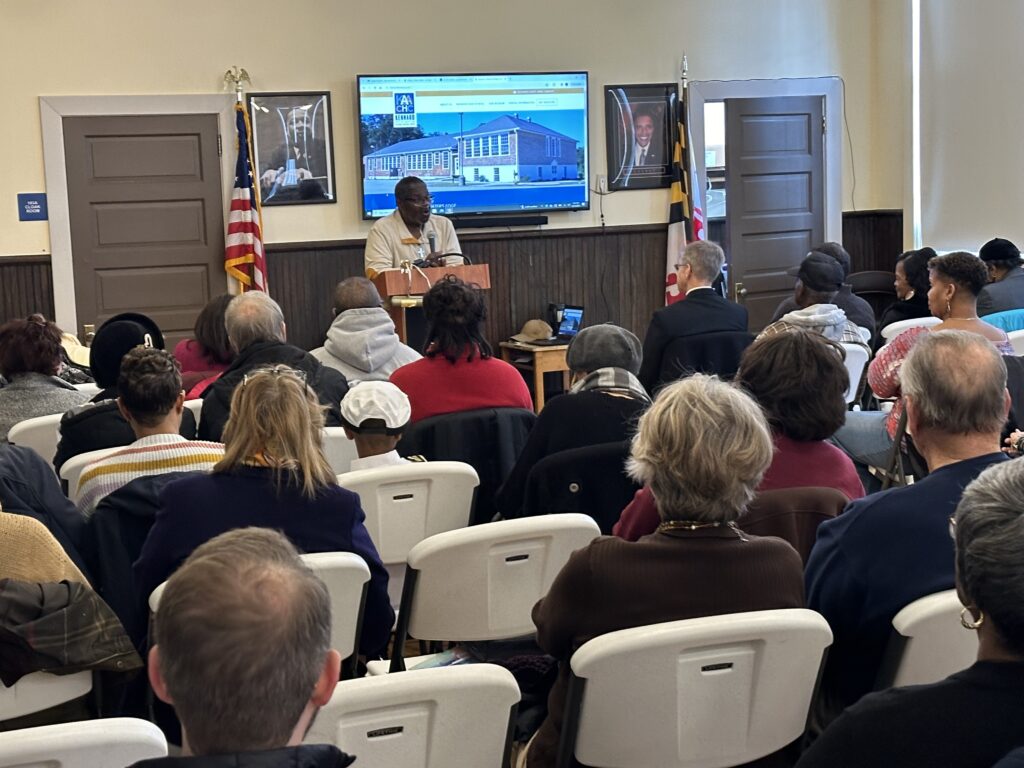
Credit: Maryland Humanities
The Archeological Society of Maryland, Inc.
Project: 54th Annual Tyler Bastian Field Session in Maryland Archeology-Teagues Point
Award: $10,000
The Archeological Society of Maryland, Inc. will host the 54th Annual Tyler Bastian Field Session in Maryland Archeology at Teagues Point in May 2025. The field session provides hands-on opportunity for laypersons to learn archaeological methods under the direction of professional archaeologists. At Teagues Point, located within the Maxwell Hall Equestrian Park, the field session will conduct block excavations to further investigate based on previously completed ground-penetrating radar (GPR).
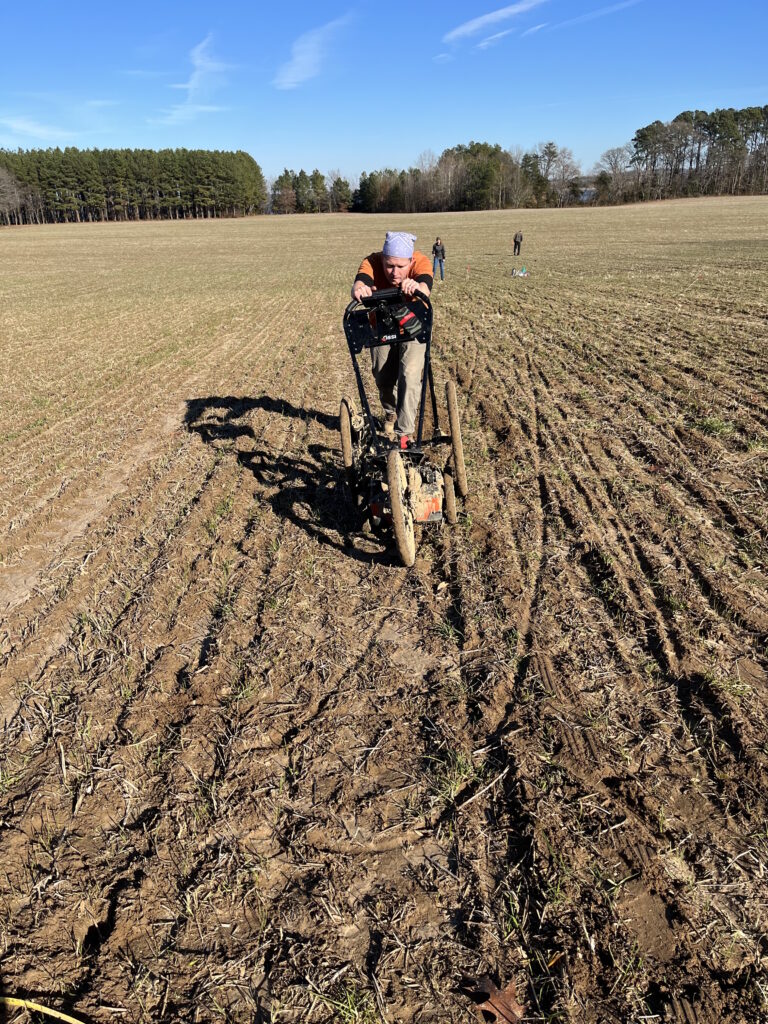
Credit: The Archeological Society of Maryland, Inc.
Blacks of the Chesapeake Foundation, Inc.
Project: Board Development & Strategic Planning
Award: $9,000
Blacks of the Chesapeake Foundation, Inc. (BOCF) will undertake a strategic planning and board development effort to expand the organization’s capacity. For the last 40 years, BOCF has been dedicated to documenting the role of Black, Indigenous, and People of Color as stewards of the Chesapeake Bay and their major contributions to the region’s maritime trades, seafood industries, and land conservation movements. In 2022 BOCF, in partnership with the Chesapeake Conservancy, purchased Elktonia Beach, the remaining parcel of the Black beaches once owned by the Carr family of Annapolis, and will work to turn this parcel into a city park.
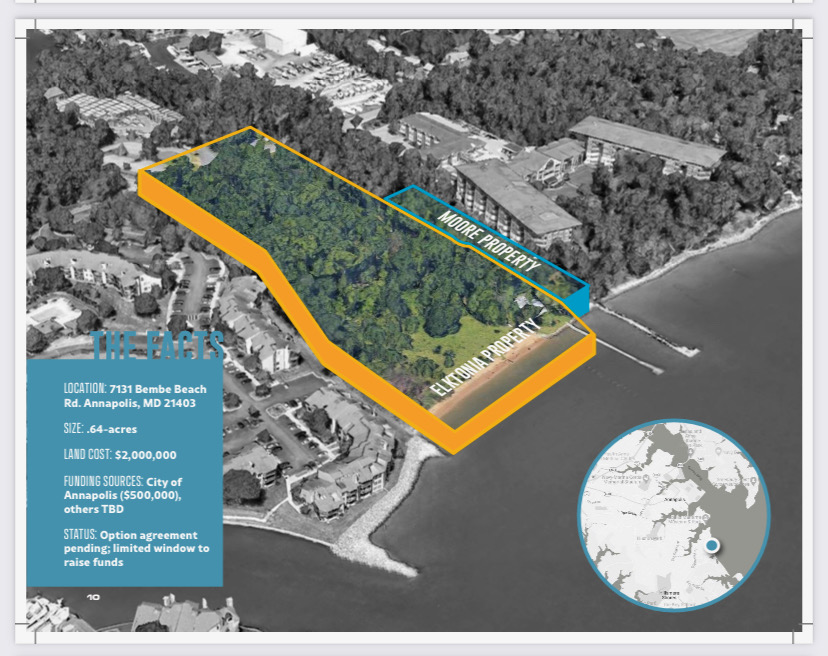
Credit: Blacks of the Chesapeake Foundation, Inc.
Carrollton Hall
Project: Carrollton Hall Descendant Engagement and Memorial Research
Award: $9,000
Carrollton Hall will complete the initial research and development towards creating a searchable database of archival genealogical resources related to those enslaved by the Carroll family. They will also visit other Sites of Conscience to learn from other institutions that have erected memorials to the enslaved who lived and worked at their sites, which will help to inform similar efforts at Carrollton Hall. Now part of the Franciscan Friars Conventual, Carrollton Hall was built in 1832 for Emily Canton McTavish, granddaughter of Charles Carroll of Carrollton, a signer of the Declaration of Independence. The property is a site where multiple generations of enslaved laborers worked under successive Carroll and McTavish owners. It is the only Carroll-associated historic site with public outreach that is still in its original agricultural context.

Credit: Carrollton Hall
Friends of Cowdensville A.M.E., Inc.
Project: Roof Replacement
Award: $9,000
Friends of Cowdensville A.M.E., Inc. will repair and replace the roof of the Cowdensville A.M.E. Church. Built in 1907, this is the second home of the congregation which was founded in 1857. Cowdensville, in Baltimore County, is a small African American community established in the first half of the 19th century and the church continues to be the center of the Cowdensville community.
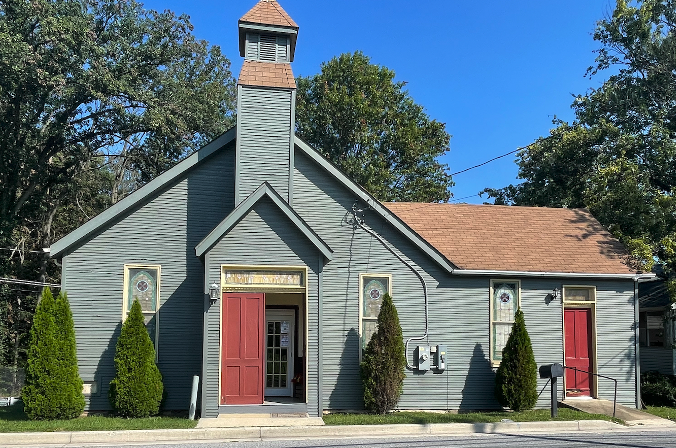
Credit: Friends of Cowdensville A.M.E., Inc.
Hosanna Community House, Inc.
Project: Guided by William Still: Rediscovering Harford’s Underground Railroad
Award: $8,900
Hosanna Community House, Inc. will develop an Underground Railroad tour series to highlight the Harford County sites associated with enslaved African American seeking self-emancipation. The project will focus on researching and documenting sites mentioned in available firsthand accounts and developing narratives to be used in tour scripts and other interpretive programing.
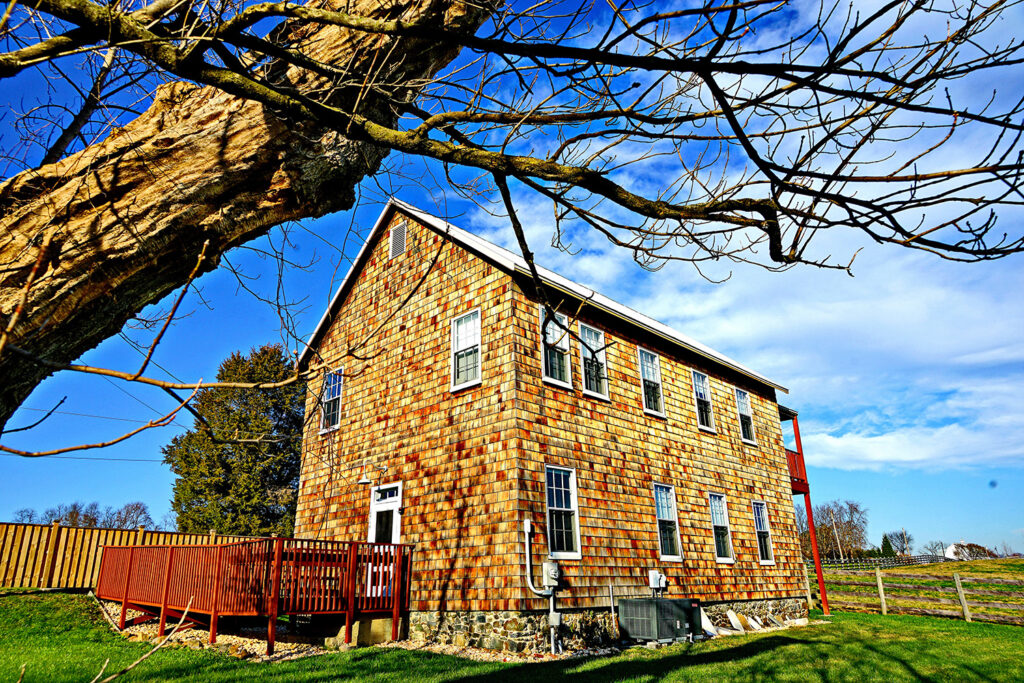
Credit: Hosanna Community House, Inc.
Nepal Education & Cultural Center
Project: Roof Replacement
Award: $8,200
Nepal Education & Cultural Center will repair and replace the metal roof of their property in Germantown, Montgomery County. Also known as the Elizabeth Waters Farmhouse, the property was built c.1884-1892 and was the home to the Howes family for almost 90 years. The Nepal Education & Cultural Center is dedicated to preserving Nepali language, culture, values, and religion. It is considered to be the first Nepali mandir, a Hindu temple, outside of Nepal to have its own priest and premises.
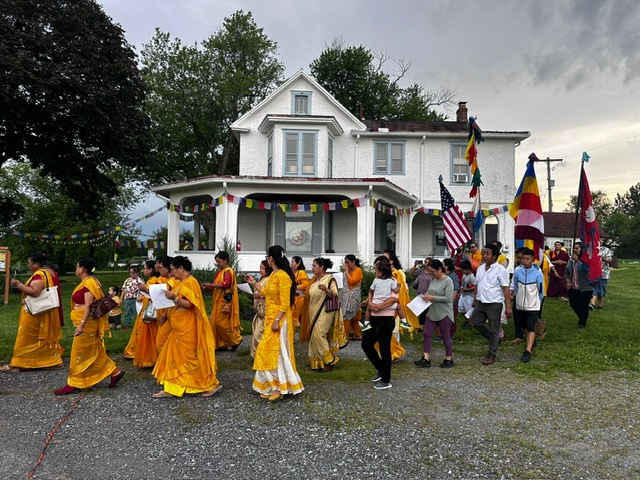
Credit: Nepal Education & Cultural Center
Allegany County Historical Society, Inc.
Project: 1845 Canada Hose House Apparatus Bay Door Restoration
Award: $8,000
Allegany County Historical Society, Inc. will restore the bay doors on the 1845 Canada Hose House Apparatus building so that they are fully operational. The oldest firehouses built in Cumberland, the house was completed in 1845 and features large double doors used for the fire engines. The Allegany County Historical Society purchased the firehouse in 2023.
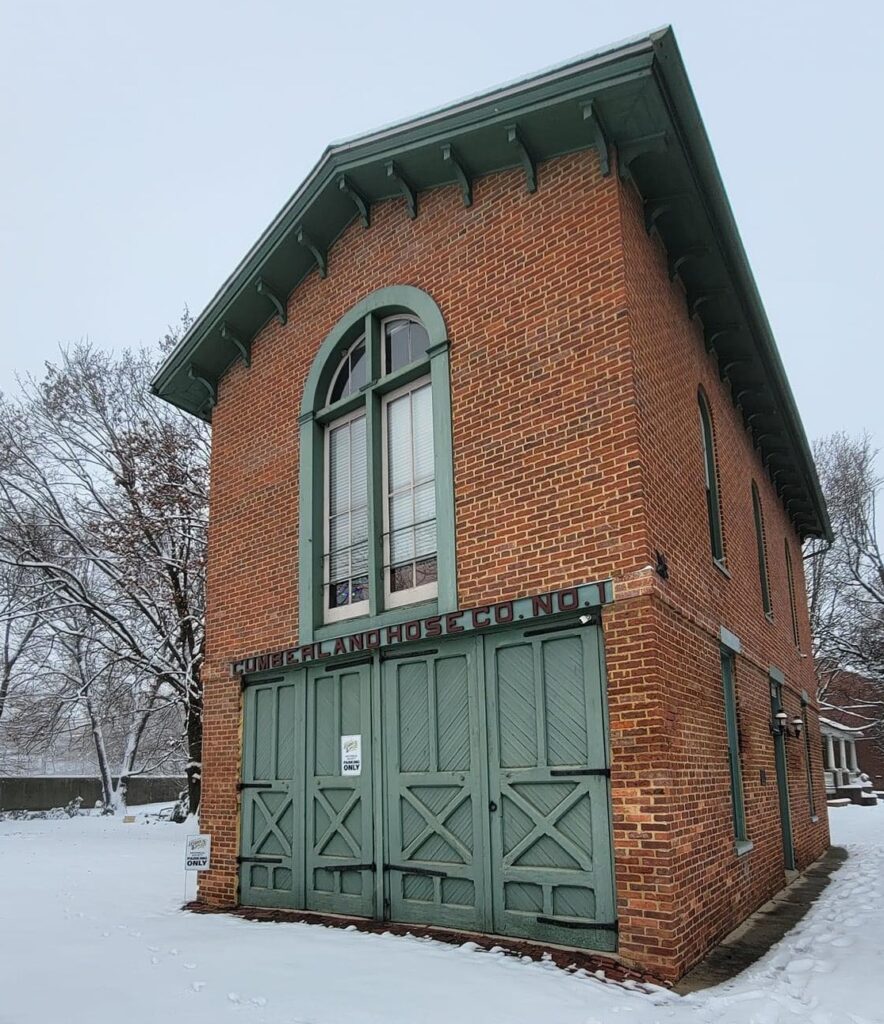
Credit: Allegany County Historical Society, Inc.
Town of Princess Anne
Project: Rehabilitating the Princess Anne Election House
Award: $8,000
The Town of Princess Anne will make repairs to the c.1870 election house. Originally located at Manokin and Beckford Avenues and moved to its current location on Somerset Avenue, the election house is a rare surviving example, one of the last surviving on the Eastern Shore. Election houses, as the name implies, were small, usually one-room structures built specifically for voting.
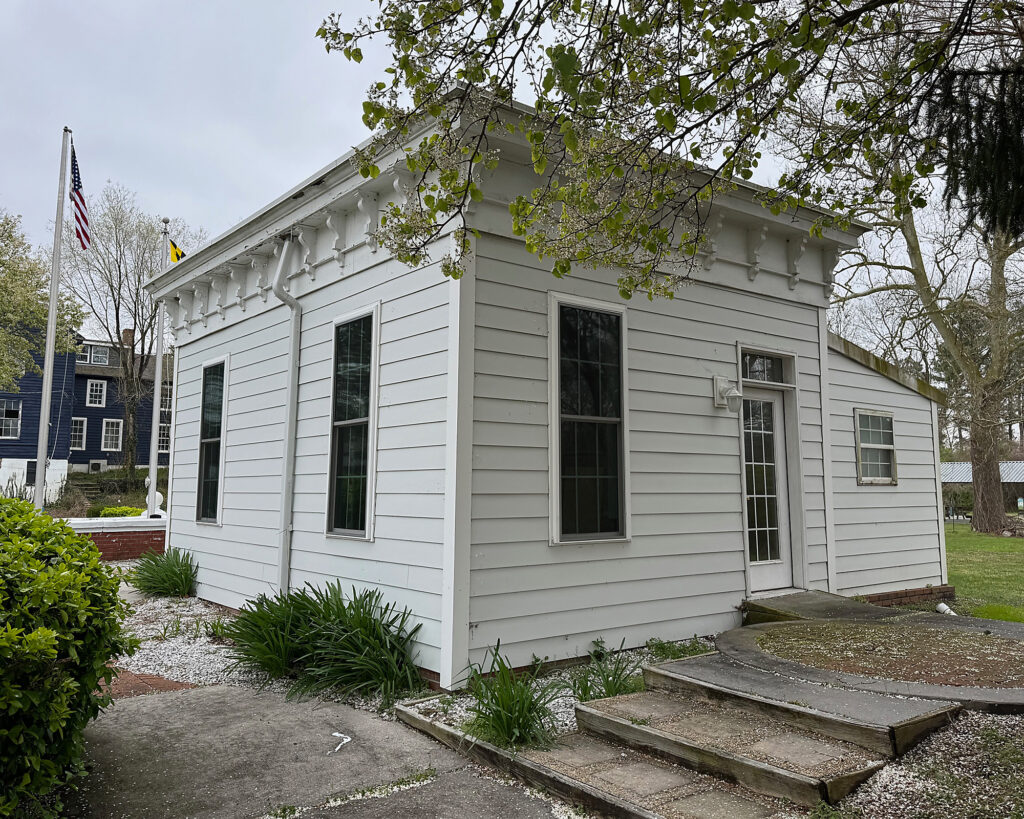
Credit: Town of Princess Anne
Zion Lutheran Church
Project: Zion Partners for Sacred Places Consultation
Award: $8,000
Zion Lutheran Church will work with the consultants at Partners for Sacred Places to identify tools and partnerships to help Zion leverage its facility and grounds to provide for the continued stewardship of its historic property. Built to serve Baltimore City’s first and oldest German immigrant congregation, which was established in 1755, the church was built in 1808. Partners for Sacred Places is the only national, non-sectarian, nonprofit organization focused on building the capacity of congregations of historic sacred places to better serve their communities as anchor institutions, nurturing transformation, and shaping vibrant, creative communities.
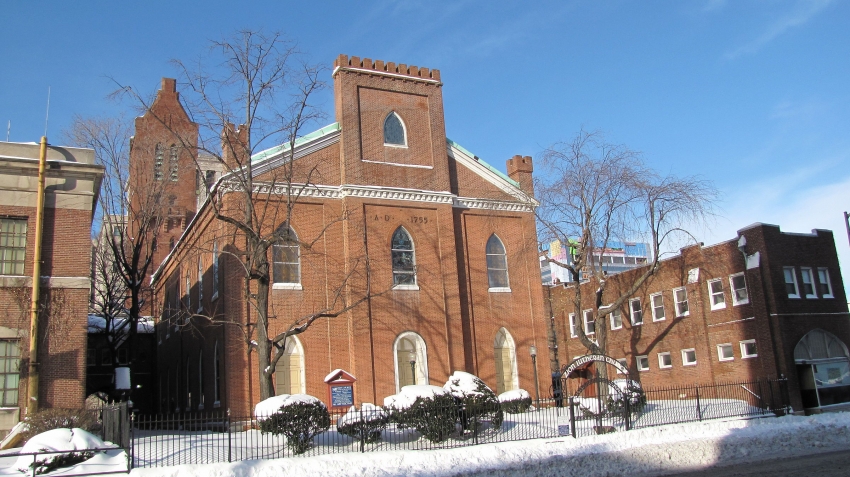
Credit: Zion Lutheran Church
First & Franklin, Presbyterian Church of Baltimore
Project: Accomplished Arts Apprenticeship Program Rehabilitation Project
Award: $5,000
First & Franklin will work with The Peale’s Accomplished Arts Apprenticeship program to complete window and masonry repairs. Built 1845-1875, the church boasts the tallest steeple in the City of Baltimore and is an example of Gothic Revival Style architecture. The Peale’s Arts Apprenticeship program provides non-traditional mentorship and vocational training in fine art, curatorial practice, art installation, logistics, and historic building preservation.
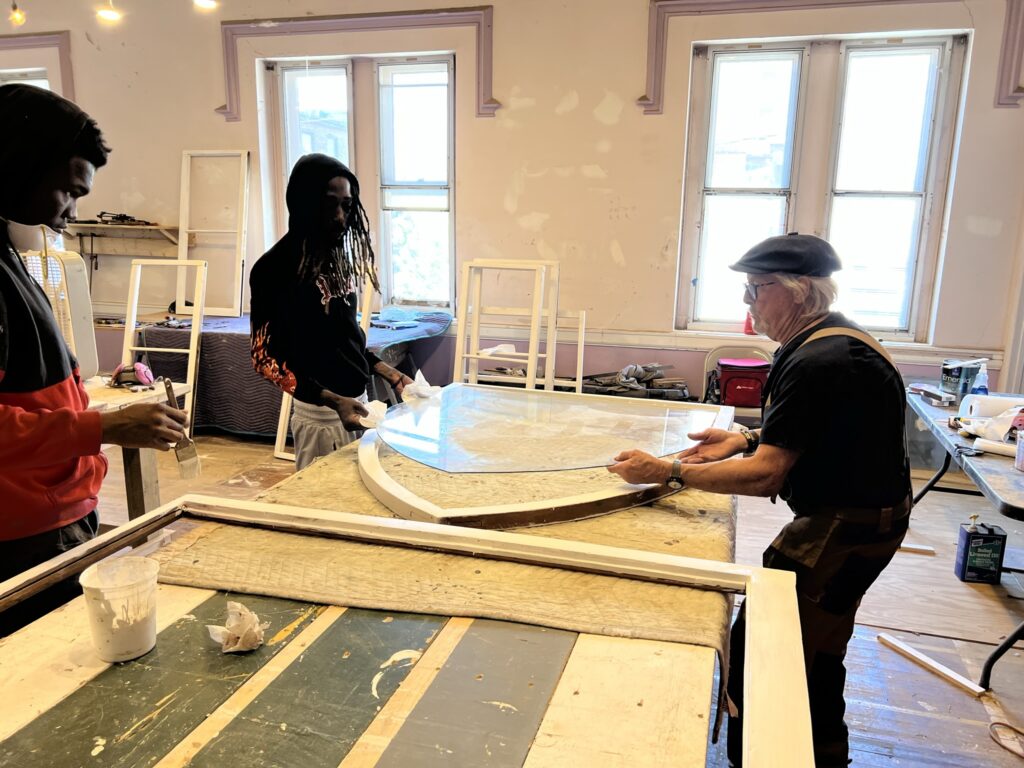
Credit: First & Franklin, Presbyterian Church of Baltimore
Laurel Cemetery Memorial Project, Inc.
Project: Documenting Baltimore’s Laurel Cemetery
Award: $5,000
Laurel Cemetery Memorial Project, Inc. will collaborate with Baltimore Heritage to prepare a National Register of Historic Places nomination for Laurel Cemetery, as well as hold several outreach events to support the continued stewardship of this historic cemetery. Incorporated in 1852, Laural Cemetery was Baltimore’s first African American non-denominational cemetery. It quickly became a popular burial place for people across Black Baltimore’s socioeconomic spectrum; current estimates for total burials are between 37,000-42,000. Unfortunately, by the 1930s management failed to maintain the cemetery and in 1957 the property was sold to a real estate company. Despite a series of lawsuits, the lion share of the cemetery was paved over, eventually became a strip mall.

Credit: Laurel Cemetery Memorial Project, Inc.
Maryland Center for the Visual & Performing Arts, Inc.
Project: Bayless Grahm Farm Enslaved Graveyard Rehabilitation
Award: $5,000
Maryland Center for the Visual & Preforming Arts, Inc. will complete ground-penetrating radar to assess the number of burials and install fencing and signage surrounding the Bayless-Graham Farm Enslaved Graveyard. Originally the land was part of a larger plantation owned by the Wilson family and according to 18th century records the family enslaved many African Americans. In 2007 the estate of Emily Bayless Graham, a Wilson family descendant, gifted the land to the Maryland Center for the Visual & Performing Arts, Inc. for the building of a new arts center.
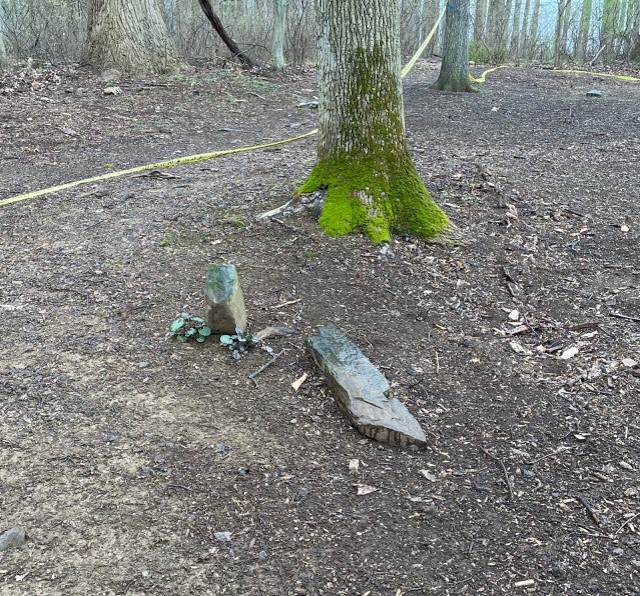
Credit: Maryland Center for the Visual & Performing Arts, Inc.
Prince George’s County Parks and Recreation Foundation
Project: Riversdale Dairy Restoration Education Project (Phase 1)
Award: $5,000
Prince George’s County Parks and Recreation Foundation will restore the Riversdale House Museum’s dairy and reinterpret the space to be more inclusive of the lives of the enslaved, free Black, and indentured workers who worked and lived there. This project is a part of the museum’s efforts to reimagine how it presents itself to the public. For years, the museum focused on a single perspective narrative that is shifting to a more multivocal inclusive interpretation, spanning the time between 1800-1864. Also known as Calvert Mansion, Riversdale House was built between 1810-1807 on a 749-acre plantation, part of which became part of the Maryland Agricultural College, the predecessor of the University of Maryland.
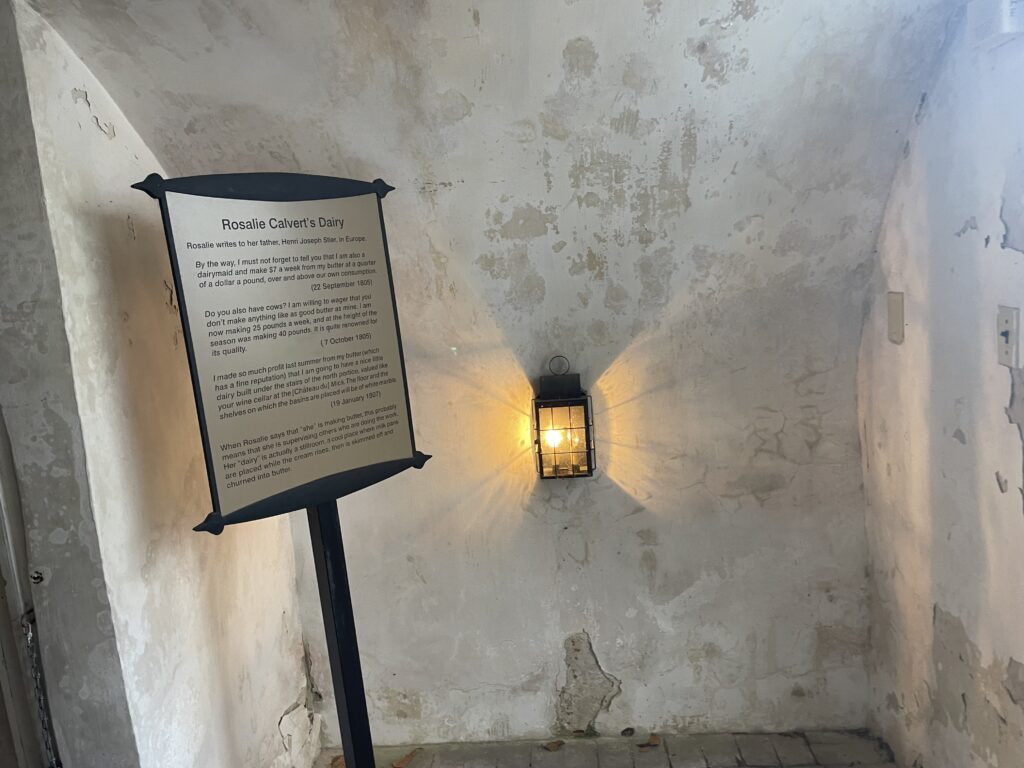
Credit: Prince George’s County Parks and Recreation Foundation
Quinn Chapel African Methodist Episcopal Church
Project: Bell Tower Restoration and Stabilization Project
Award: $5,000
Quinn Chapel African Methodist Episcopal Church will stabilize their bell tower. Located in Frederick, Quinn Chapel is known as one of the longest, continuously operating African American congregations in the State. The parish was founded in the late 1700s, and in 1819 a brick building at the present site was acquired as their permanent home. That original, older building has been remodeled and incorporated into the larger building that stands today. During the Civil War, the church was used as a hospital for the wounded from the Battle of Monocacy. And after the war, Quinn Chapel held a Freedmen’s Bureau school from 1867-1870, teaching an average of 17-45 students each month.
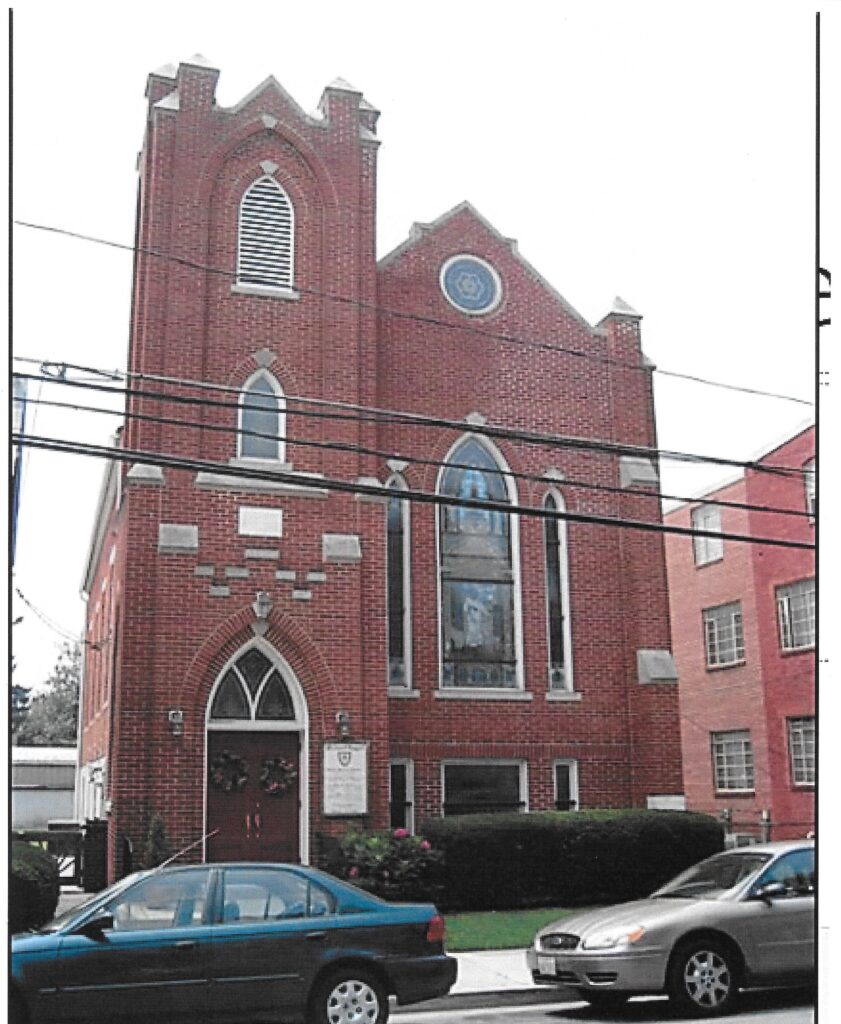
Credit: Quinn Chapel African Methodist Episcopal Church
Baltimore Humane Society
Project: Baltimore Humane Society Memorial Park Restoration
Award: $4,000
Baltimore Humane Society will repair and restore monuments in their Memorial Park in Reisterstown, as well as repair walkways to ensure safe and accessible access. Established in 1927, the pet cemetery was previously known as the Nicodemus Memorial Park and has over 9,000 interments.
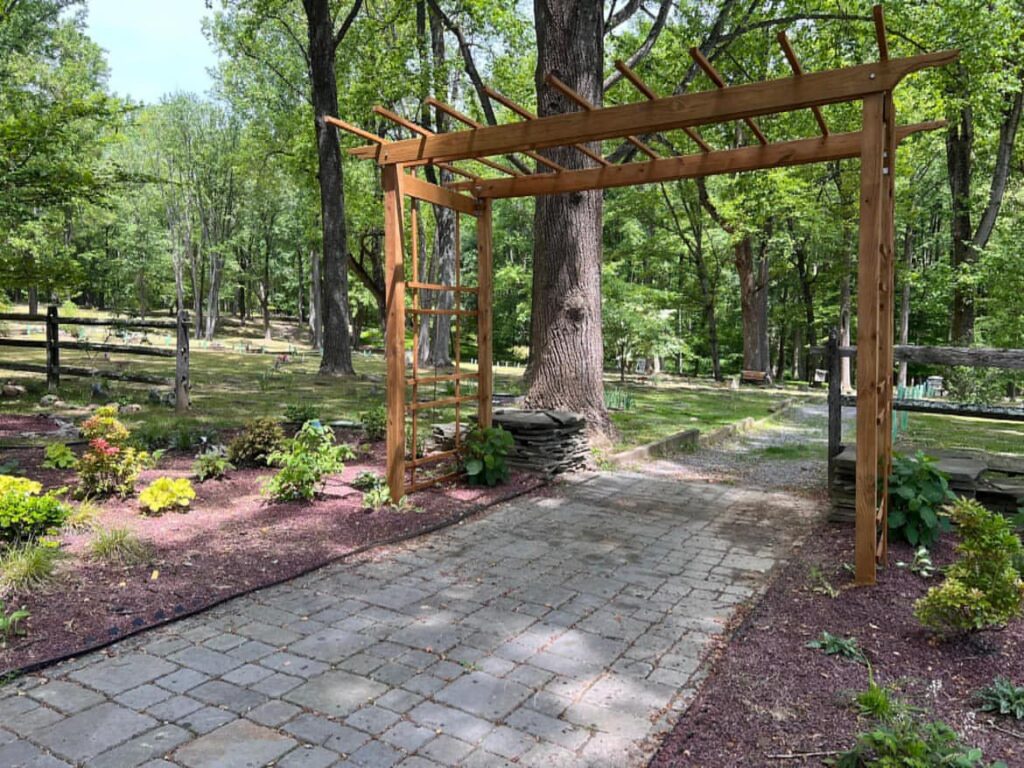
Credit: Baltimore Humane Society
Washington County Historical Trust, Inc.
Project: Saylor House in Kiwanis Park: Restoration and Re-Use (Phase 6)
Award: $2,100
Washington County Historical Trust, Inc. (WCHT) will repair the main flooring allowing the WCHT and the City of Hagerstown to increase education and interpretive events, including historic building skills workshops. The Saylor House is a c.1800 stone building located in present day Kiwanis Park. Since 2007, the WCHT has been working with the city to complete a multi-phased restoration of the antebellum structure, with the goal to have all the work completed by 2025.
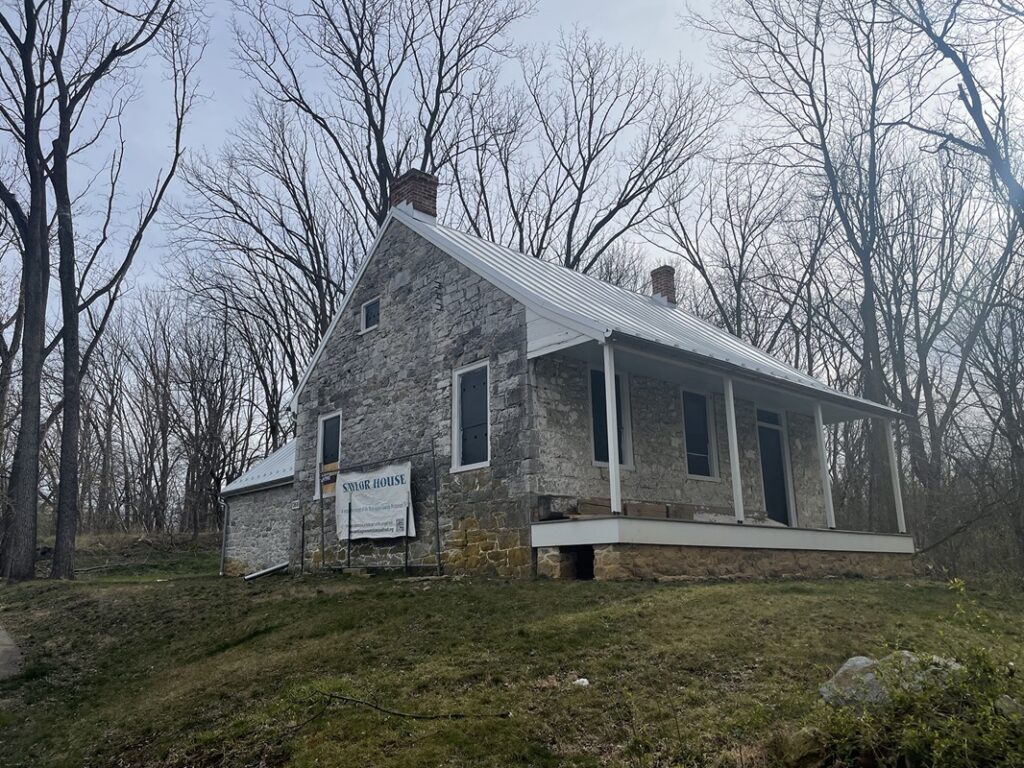
Credit: Washington County Historical Trust, Inc.

